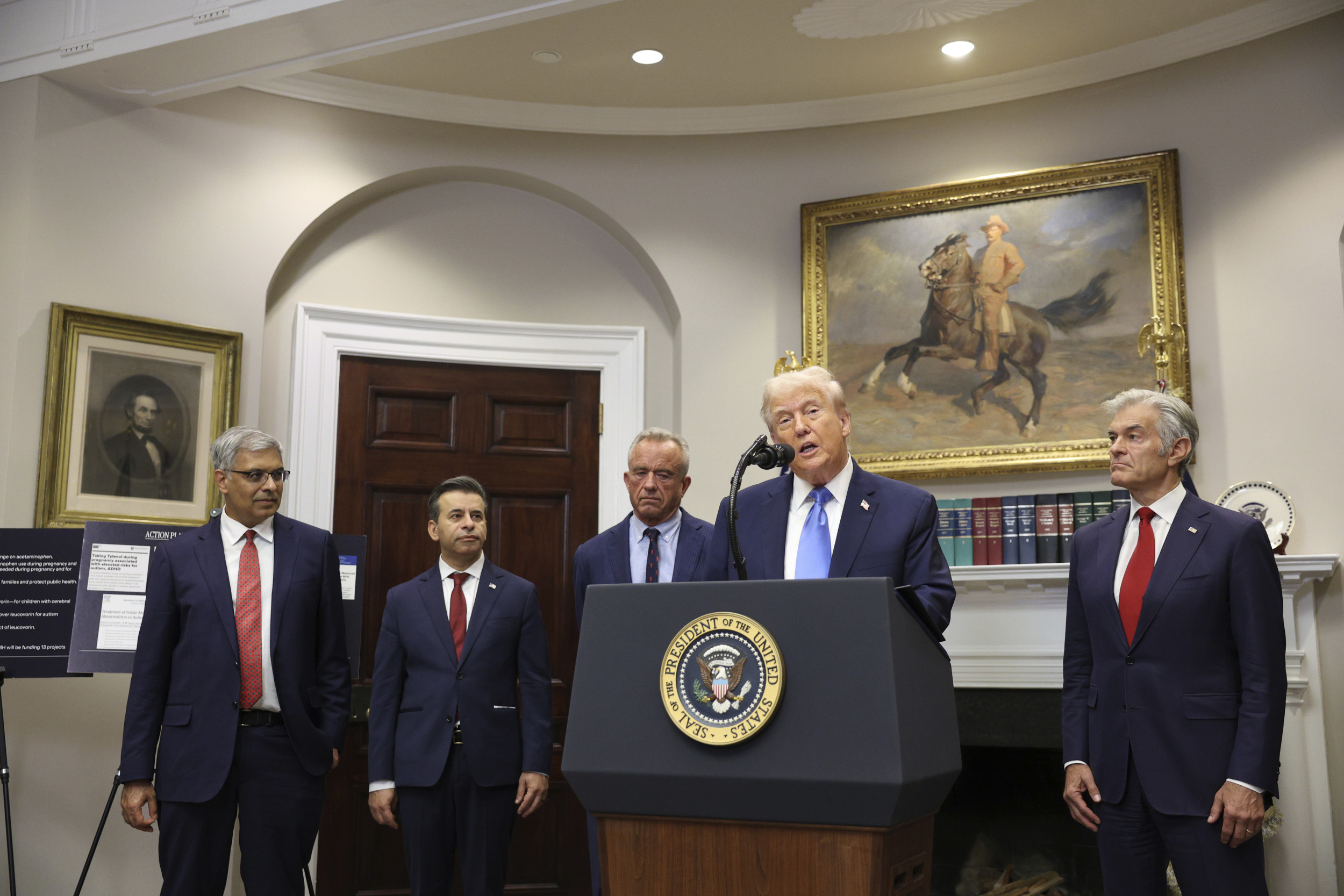The war between Israel and Hamas has led to a humanitarian crisis in the Gaza Strip, where food and medicine are cut off and living conditions are deteriorating.
Who is responsible for mass starvation in Gaza? Has Israel broken international law? Is a peaceful, prosperous future possible for Gaza? Newsweek contributors Paul du Quenoy and Faisal Kutty debate:
Paul du Quenoy:
Hamas bears ultimate responsibility for the humanitarian crisis in Gaza. If it sincerely cared about the welfare of the Palestinian people, it would have ended its decades-long genocidal commitment to the destruction of Israel. It would have refrained from the October 7, 2023, attack on Israeli civilians, which precipitated the massive destruction that led directly to the current situation. It would have surrendered when its combat operations consistently failed rather than prolong a hopeless guerrilla war backed by holding innocent civilians hostage. The Palestinian people could end their plight tomorrow if they would only zip-tie their radical Islamist leaders and end the “resistance” that has brought them nothing but woe and the sympathy of Western hysterics who sit far away, totally unable to help them.
Faisal Kutty:
Mass starvation in Gaza is not a byproduct of war—it is a method of war. While Hamas bears responsibility for war crimes, the root cause of this crisis lies in Israel’s decades-long occupation and blockade. Israel controls Gaza’s borders, airspace, and access to food, water, and medicine. Over 100 humanitarian organizations, the World Health Organization, and Médecins Sans Frontières have documented “man-made mass starvation,” with children dying and civilians shot while seeking food. Leading genocide and Holocaust scholars—including Israeli and Jewish experts—have warned that what is unfolding bears the hallmarks of genocide. Former U.S. envoy David Satterfield called Israel’s attempt to blame the UN for starvation in Gaza “knowingly false.” Israeli leaders now face International Criminal Court (ICC) charges for using starvation as a weapon—a war crime and an act consistent with genocidal intent. This atrocity will only end with a ceasefire, unfettered humanitarian access, and full legal accountability—without exception.
du Quenoy:
The antisemitic global Left can blame Israel as much as it wants. There is simply no escaping the fact that the Palestinians who now face starvation in Gaza would not be in this predicament if they were not ruled by Hamas, a violent terrorist organization that allied with Iran’s rogue government and Hezbollah, another terrorist organization, to launch a dastardly attack that drew a massive reprisal. The crisis will only end when Hamas ends.
Kutty:
Calling everyone who criticizes Israel “antisemitic” is a tired deflection. This isn’t about who governs Gaza—it’s about what’s being done to 2.2 million civilians, half of them children. What’s happening—siege, starvation, mass death—isn’t new. What’s new is the scale, and the fact that it’s unfolding in plain sight. That’s not “defense”—it’s collective punishment. Even war has rules. You can condemn Hamas’ crimes—and I do—without justifying Israel’s genocidal conduct. Ending this crisis requires not revenge, but humanity, law, and moral responsibility.
du Quenoy:
The only “deflection” here is that 2.2 million civilians, half of them children, live under the murderous yoke of a widely designated terrorist organization. That organization is all too happy for them to suffer, starve, and die so that it can continue holding power. Hamas’ rule has disastrously failed to lead to anything even close to a peaceful solution—all while the morally bankrupt international Left meretriciously blames Israel. If Hamas’ leaders, who live comfortably in faraway Qatar, had any sense of humanity, law, or moral responsibility, they would give up power. And if they don’t, the Palestinians who face an impossible situation should take it from them.

Newsweek Illustration/Getty
Kutty:
It’s astonishing to demand that starving, bombed, displaced Palestinians—half of them children—overthrow Hamas while ignoring that Israel controls Gaza by land, sea, and air. That makes Israel the occupying power under international law—and responsible for civilian welfare. Hamas took power in 2007, decades after Israel began dispossessing Palestinians and, at times, quietly enabled Hamas to weaken the Palestine Liberation Organization. Blaming only Hamas while excusing Israel’s actions isn’t just morally bankrupt—it’s legally indefensible. Bombing and starving people, then telling them to fix it, is victim-blaming on a genocidal scale. If you care about justice, demand what international law requires: a ceasefire, aid access, and accountability for all parties—not just the ones you dislike.
du Quenoy:
It’s even more astonishing to demand that the international community—and the starving people themselves—accept government by terrorists. It’s never gone well before and will not go well in the future. The only path to peace is the total disempowerment of the terrorist cartel that has for too long oppressed its own people while lethally menacing others. Creating conditions that have led to possible mass starvation after bringing about tens of thousands of needless deaths should be the last straw. Unfortunately, it probably won’t be.
Kutty:
If your answer to mass killing is “accept terrorists or die overthrowing them,” you’re not offering peace—you’re justifying atrocity. Palestinians have lived under blockade, occupation, and apartheid for decades—long before Hamas took power, with tacit support from Israeli leaders. Most of Gaza’s residents were children or not yet born in 2007. They didn’t elect Hamas. No people should have to pick between bombs and risking death to remove rulers they never chose. That’s not justice—it’s the oppressor’s logic: punish the powerless, excuse the powerful. Peace starts by ending impunity, not deepening subjugation.
du Quenoy:
The fact that Hamas’ terrorist leadership was not chosen by its people alone makes it illegitimate. Its barbaric attack on Israel on October 7, 2023, and the consequences for both peoples means it should be utterly outcast. Rather than coddle terrorists, all concerned parties should work to remove Hamas and establish a governing authority in Gaza—whether indigenous or imposed—that poses no threat to anyone, renounces terrorism, and seeks to live in peace. Only then can proper humanitarian relief, reconstruction, and, one hopes, prosperity return. It will take courage and a willingness to stare down terrorists and those who support or sympathize with them, but this is the way to make Gaza great again.
Kutty:
The path forward demands more than empty rhetoric. The U.N. must uphold its Charter by enforcing Security Council Resolution 2712—mandating immediate humanitarian access to Gaza—and the many long-ignored Security Council resolutions affirming Palestinian rights. The International Court of Justice’s provisional measures must be implemented, and the ICC’s war crimes investigations must proceed without interference. The U.S. must end its military complicity and stop shielding Israel from accountability. Gaza cannot be rebuilt on rubble and repression. Palestinian rights are no longer a fringe issue—they are a global moral reckoning that cannot be ignored or buried. Justice demands a ceasefire, unimpeded aid, and accountability for all parties. Peace won’t come through collective punishment or violence—it will come when international law is enforced equally, and Palestinians are seen not as expendable lives, but as equal human beings.
Paul du Quenoy is President of the Palm Beach Freedom Institute.
Faisal Kutty is a Toronto-based lawyer, law professor, and frequent contributor to The Toronto Star.
The views expressed in this article are the writers’ own.




